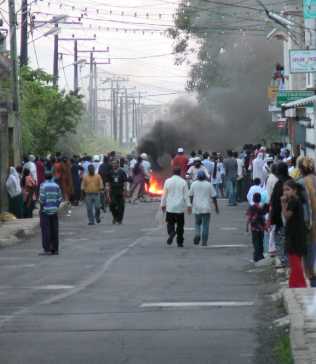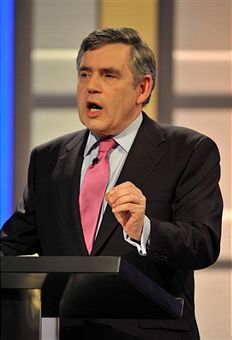Today I got a mailed posting from Geoff Ellis who is visiting family in Mauritius (see copy at end of this entry)
Water politics is on the rise both because of climate change and competition for the use of rivers that cross borders. Recently I heard that the Dead Sea is drying up, although evidently the Aral Sea may be slowly recovering.
However, this also reminded me how as a child the Free Wales Army were my heroes. I was to small to understand much about it, but I do know they blew up water pipelines. Sadly (so I thought) they were eventually captured and put behind bars and the water pipelines were safe. Now I guess these were acts of sabotage rather than terrorism and in retrospect it sounds rather ridiculous … blowing up oil pipelines, yes, but water?
Being brought up with Cardiff they seemed sort of Welsh Robin Hood-like figures – very romantic.
It was only years later I understood the full story.
When I was nine years old my dad died and after that we lived on a state widows pension supplemented with students (and at one stage Irish navvies) staying half-board. Hard work – hot meals to prepare breakfast and evening, washing, not to mention cleaning the thick orange Cardiff clay from the carpets when the navvies were staying.
Once a year we got the bill for the water rates. There was also a once-a-year bill for the house rates (tax on land/housing), but as we were on low income we got 90% rebate for this, so it was not too bad. But when the water rates came, there was no rebate, and that stage not even monthly payments to spead the cost. Mum was good with money, budgeting carefully and saving for major bills, but still it was a big bill and hard to pay on one go … and for this water tax there was no relief or rebate, no matter your income, you had to pay in full.
It was then years later again and I was renting my own hose for the first time in Bedfordshire … England. When I got my first water rates it was for £60 (it was a few years ago!) and when I asked mum I found hers was for £300. The population in Wales is very spread out, so it is more expensive to transport the water, and hence, I guess, why it cost five times as much.
If Wales has a national resource (once the coal was plundered), it is water … it rains, and rains, and rains! When I was little my dad used to drive us up to visit Brecon, through the coal valleys north of Cardiff and up into the Brecon Beacons, with the vast reservoirs filling the valleys between the mountains. We picnicked beside the streams flowing down the mountains and wondered at the huge dams.
The water from these dams does not flow to Cardiff, the coal valleys or central Wales, but is piped to Birmingham … and as the water flows out, no money flows back. So English water is cheap, and the cost of Welsh water falls heavily on those who can afford it least.
The Free Wales Army deserve a play or a film, a slightly askance view … you cannot present blowing up water pipleines with a straight face, but with a hint of the issue beneath. For me as a child, the politics of water was a painful and serious business.
Geoff’s posting from Mauritius:
water trouble in paradise
L’Avenir, St. Pierre, Mauritius 31 Dec 2006
In this usually quite village of L’Avenir nestled amongst the mountains on the Mauritian plateau, New Years eve is a time for cleaning the house ready to welcome the New Year with fireworks. But this year is different. The road is ablaze at both ends of the village as some of the residents, frustrated by days of water cuts, have taken to Royal Road. They just haven’t run out of water, in the higher parts of the village for 5 days now, some have run out of clean clothes to wear. It is true that the reservoirs are lower this year due to less rainfall than usual over the winter months, but what makes the residents angry is the seemingly unjust way in which the limited water is supplied. In the neighbouring village of Beau Bois they have water and in the small town of St. Pierre a mile away I’ve seen people washing the pavements in front of their houses, no sign of water shortage there. And of course, the hotel swimming pools are full, the greens and fairways of the golf course are lush and I doubt if any ministers or government officials have been washing in a bucket! As one residents told me, making a civil disturbance in the only way to get the water turned back on, no one answers the water board office ‘hotline’ . Whether or not we will be able to wash in 2007 is somewhat in the hands of the gods.
Geoffrey Ellis (UK resident on holiday in L’Avenir with parents-in-law)

[see full image]
 Yesterday, my postal vote went off and lacking a Plaid Cymru candidate far from my homeland I made do with the best of the rest. This is perhaps the most exciting election in the UK for many years as it seems likely that one result will be a change in the voting system, so that in future elections I will not feel I need to vote ‘tactically’, but more for the people, parties and policies that I most deeply support.
Yesterday, my postal vote went off and lacking a Plaid Cymru candidate far from my homeland I made do with the best of the rest. This is perhaps the most exciting election in the UK for many years as it seems likely that one result will be a change in the voting system, so that in future elections I will not feel I need to vote ‘tactically’, but more for the people, parties and policies that I most deeply support.